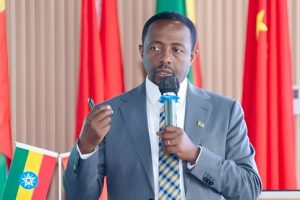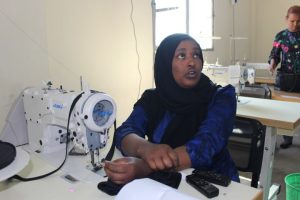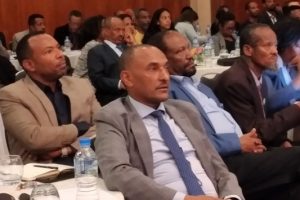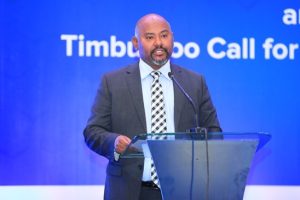
ADDIS ABABA – The International Livestock Research Institute (ILRI) in collaboration with the European Union (EU) and Ethiopian regional and national partners launched the “Restoration of Livestock Services in Conflict and Drought-Affected Areas of Ethiopia” (RESTORE) project.
The project will be implemented with 16 million Euros aimed at ensuring food and nutrition security through advancing livestock productivity. Launching the project, ILRI Team Leader Theo Knight said that the project will run from 2024-2028 and implemented in six drought and conflict affected states; including Afar, South Ethiopia, Tigray, Amhara, Oromia, and Somali states.
As to him, the project will immensely contribute to improve livestock health services, enhance market access, and build resilience to climate change, among others.
In the past decade, the EU had invested about 90 million Euros through the recently completed Health of Ethiopian Animals and Rural Development (HEARD) project, he said.
“The new project [RESTORE] will embrace 54 Woredas in drought and conflict affected areas targeting over half a million livestock producers, 1,000 women and youth groups and 300 private veterinary practitioners,” he added.
“Following the accomplishment of this project, we expect to see improved livestock feed production, sustainable levels of livestock assets and innovations in animal health service delivery, stronger Public-Private-Partnership(PPP), and improved quality of leather production and processing.”
On his part, Ethiopian Veterinary Association (EVA) President Bojia Indebu (PhD) said that the lack of ownership in the country’s veterinary sector affected the efforts of providing quality services.
In doing so, such project sought to bring about a tangible change by providing capacity building training to veterinary practitioners and establishing quality service standards in the sector, he said.
He said, veterinary inputs and medicines supply is still dominated by the government, adding that, the sector should be privatized and strong Public-Private-Partnership (PPP)is important to advance the country’s livestock productivity.
Somali State Pastoralist Development Bureau Representative and Somali State RESTORE Coordinator Ahmed Yusuf (PhD) said that the former HEARD project benefited more than 9,000 households in Somali state.
According to him, the project immensely contributed to the improvement of livelihood of the pastoral community through improving livestock health and productivity.
The new RESTORE project will also benefit over 7,000 households in 14 woredas of the state, he said. Accordingly, the RESTORE project sought to leverage innovative approaches to restore livestock service delivery systems and bolster resilience in drought and conflict affected communities
BY STAFF REPORTER
THE ETHIOPIAN HERALD SATURDAY 9 NOVEMBER 2024





